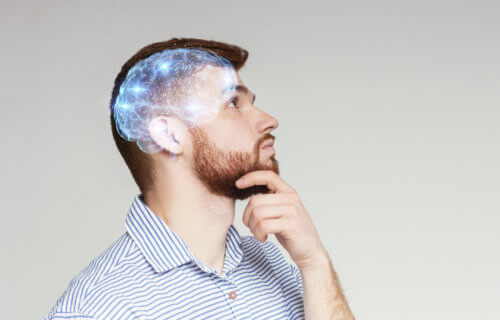TRONDHEIM, Norway — Dopamine often goes by its nickname, the “feel-good” hormone, as it stimulates feelings of happiness and joy. Now, a recent study finds this chemical in the brain also impacts a wide range of behaviors — including the passionate drive some men have to succeed and even how patients with autism react.
Dopamine is secreted by the brain whenever pleasurable stimuli increases. For example, when a person receives a reward or accomplishes a goal, the neurotransmitter travels from neuron to neuron, relaying the signal and extending the feeling of happiness. The right amount of the hormone can boost memory, attention span, and even learning abilities. However, studies find that a drop in dopamine can cause various mental impairments, such as psychoses, Parkinson’s disease, ADHD, and now, autism.
In a recent study focusing on the effect of dopamine levels among autistic individuals, scientists discovered an association between the neurohormone and autism. The connection was significantly stronger among men than women.
“This is fascinating. Research shows a more active dopamine system in most men,” says Hermundur Sigmundsson, a professor at the Norwegian University of Science and Technology’s (NTNU) Department of Psychology, in a release.
Sigmundsson is leading new research that examines the disparities between men and women in the most important motivational variables for success. His study relies on the fact that men and women have different levels of dopamine activation. The study included 917 people ranging in age from 14 to 77, with 502 women and 415 males participating.
“We looked at gender differences around passion, self-discipline and positive attitude,” Sigmundsson says.
Is this why more men develop autism?
Earlier research involving individuals in Iceland revealed that males are more reliant on their desire to achieve. Dopamine is typically secreted in greater amounts in men, suggesting that males are more passionate. The new research provides evidence of this through a series of survey questions. Men outperformed women in six of the eight exam questions regarding passion.
“The fact that we’ve developed a test to measure passion for goal achievement means that we can now relate dopamine levels to passion and goal achievement,” the study author explains.
This relationship between dopamine levels and personal desire may help scientists establish the link between dopamine levels and the increased risk of autism in men.
Investigations have shown that women have higher willpower, which many refer to as “grit” and are more diligent than males. The fact that their degree of enthusiasm is lower compared to men may offer insight as to why women are four times less likely to receive an autism diagnosis.
The investigators did not discover any variations in positive mentality between the genders. According to the rest of the data, however, increased dopamine levels display a link to more passionate people. In these cases, men displayed more desire and increased concentrations of dopamine. Additionally, autistic people, the majority being men, tend to become extremely passionate and focused with certain interests. The combined results indicate a correlation between dopamine levels and autism.
“Other research in neuroscience has shown hyperactivity in the dopamine system in individuals with autism, and boys make up four out of five children on the autism spectrum. This, and dopamine’s relationship to passion, might be a mechanism that helps to explain this behavior,” Sigmundsson concludes.
The study appear in the journal New Ideas in Psychology.
